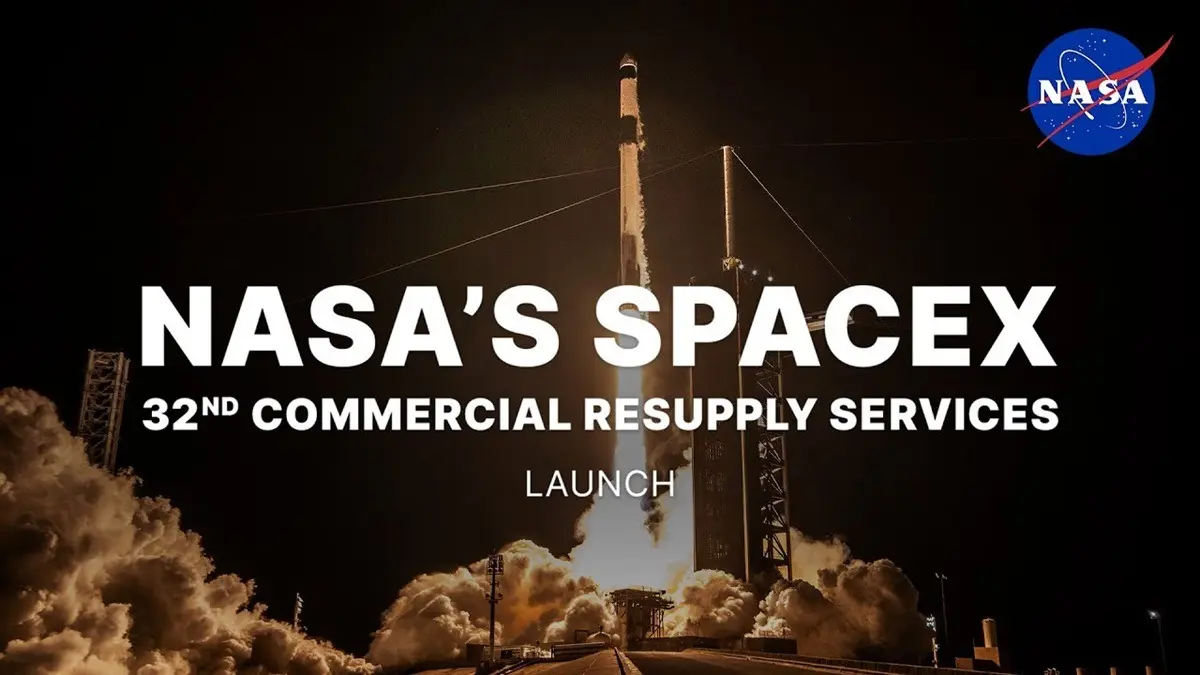Updated 20 April 2025 at 13:51 IST
CRS-32 Resupply Mission: When and Where to Watch SpaceX's Launch to the ISS
The CRS-32 mission is a crucial part of NASA’s efforts to advance scientific research and space technology.
- Science News
- 2 min read

New Delhi: NASA has announced the date for the next major commercial resupply mission to the International Space Station (ISS), carried out by Elon Musk’s SpaceX. The mission, designated CRS-32, is scheduled to launch at 4:15 a.m. EDT (1:45 p.m. IST) on April 21, 2025, from the Kennedy Space Center in Florida. The spacecraft, SpaceX’s Dragon capsule, will carry over 6,400 pounds (about 2,902 kg) of supplies, equipment, and research materials to support ongoing space research and astronaut activities aboard the ISS.
What is the CRS-32 Mission?
The CRS-32 mission is a crucial part of NASA’s efforts to advance scientific research and space technology.
In addition to regular supplies for the crew, the Dragon capsule will deliver essential tools for key experiments. One of the highlights of the mission is a robotic maneuvering demonstration, which aims to test improved autonomous operations for free-floating robots in space.
This research could help improve efficiency and safety for future space missions, including those to the Moon and Mars.
Advertisement
Additionally, the spacecraft will carry an air quality monitoring system, designed to ensure astronaut health during long-duration space travel. This system is particularly critical for deep-space missions, such as those to the Moon or Mars.
The Dragon capsule will also deliver two atomic clocks, which will be used to verify Einstein’s theories of relativity and explore advanced timekeeping techniques that are vital for navigation and communications in deep space.
Advertisement
When and Where to Watch the LIVE Coverage
The live coverage will begin at 3:55 a.m. EDT on NASA+.
After liftoff, the spacecraft will make its way to the ISS, where it is expected to dock at 6:45 a.m. EDT on April 22, at the zenith port of the station's Harmony module.
The docking process will be fully automated, but mission control teams will monitor the operation closely from the ground to ensure everything goes smoothly.
The CRS-32 mission is not just about resupplying the ISS; it’s also about advancing scientific knowledge and technology. The robotic maneuvering experiment could lead to more autonomous spacecraft in the future, which is vital for future space exploration missions.
Set your alarms, mark your calendars, and tune in to NASA+.
Published By : Isha Bhandari
Published On: 20 April 2025 at 13:51 IST
